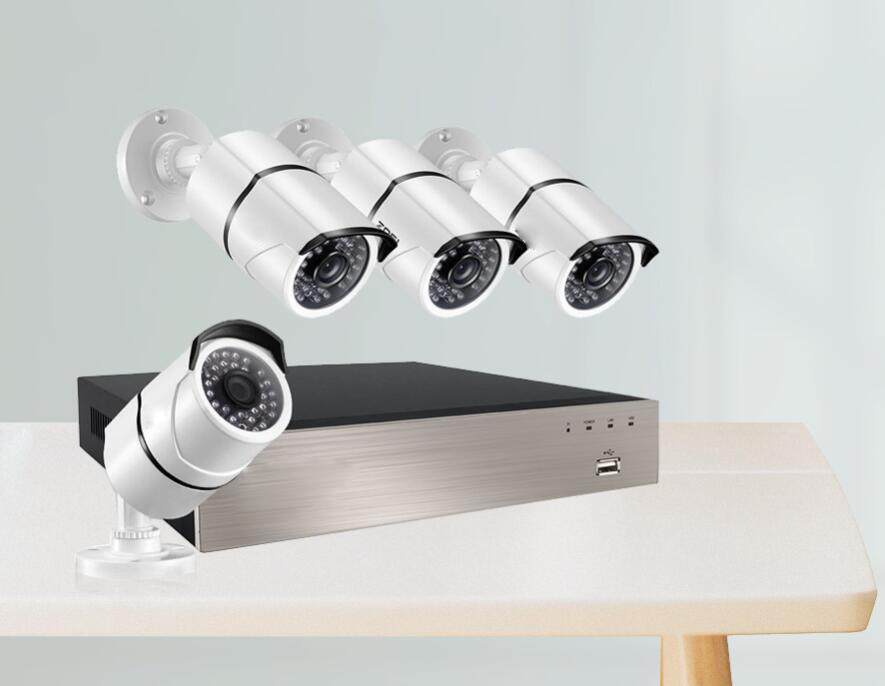What is CCTV?
CCTV - also known as video surveillance or security cameras - allows you to record and monitor what is happening at your premises. Whether you use a wall-mounted camera or a stand-alone device, if your property commits a crime, a security camera can be used to improve security and provide evidence.

Which type of security camera should you choose?
When choosing the best CCTV system for your business, the first thing to consider is whether you need a camera that works independently, or whether you want to create a system with multiple cameras (now or in the future).
Another key decision is between wired or wireless devices – which equipment and installation best fits your business needs?
You should consider the cost—balancing the initial high cost of the wireless system and the cost of hiring labor to adapt to the cable system.
Or, consider the cost of improving the corporate Internet, or any other necessary technical updates, to run the security system wirelessly.
What are the different types of CCTV cameras?
Internet Protocol (IP) camera is digital and connected to the Internet
Connect to a Wi-Fi network and access via a compatible device
Access the camera from anywhere in the world via an internet connection
Store data on the cloud or on a micro SD card (portable chip)
No professional installation required
An application that is used to accompany a device and perform tasks, such as changing views, setting alerts
Some may provide other features, such as regular/safety lights
Wired camera
Traditional choice of video surveillance
No need to continuously rely on or run a computer and internet connection
Suitable for remote locations that may lack reliable Wi-Fi
Designed and controlled by professional companies
Provide powerful visual effects
Outdoor camera
Designed for external use
Weatherproof material for all weathers
Can include tamper resistance
Wall mountable
Wired or wireless: Which one is best?
Consider this kind of interference - if you are looking for a quick fix to improve your security, the DIY wireless camera can be up and running quickly. However, waiting for the engineer to install the cable system may take longer and will actually disrupt your business when the adaptation occurs.
Next, ask how important visual design is to your business? Wired systems require drilling. If you are already operating, the wireless camera may be the way to avoid unnecessary extra repairs and repairs. However, if your business location is still in the renovation phase, you can more easily incorporate cables into the design process.
However, this may also be another factor in your decision - the strength of the Internet signal. Wireless CCTV camera systems require a reliable connection. Depending on your location, an appropriate connection may not be possible, which means that a wired camera is the only option. If your site already has Wi-Fi capabilities, be sure to check if you have the most powerful and fastest wireless connection to run a system. If not, then upgrading your corporate broadband package is worthwhile.
Other factors
Some key things to consider when choosing a security camera include:
Location - You need to decide whether you are indoor or outdoor camera as early as possible, or both. This will affect the type of CCTV system you can have. Just as external video surveillance is critical to your business, you need to put your location at the top of the list to find the best outdoor security camera for your business.
Storage - How much and how long you can store the recording is a key point to consider. Some cameras allow 7 days of storage while others can provide up to 30 days of storage. Also, where is it stored? Some options include remote: in the cloud, numbers: on a micro-sd card, or local: on a computer or hard drive.
Night Vision - Decide if your business needs this extra feature. For example, if you want to monitor a place that may be a nighttime target, especially a construction site or warehouse.
Price - There are several elements, including: initial expenses for equipment and services, ongoing costs (such as monthly subscriptions), and any other temporary expenses, such as maintenance and repair.
Image resolution – measured in pixels (P); the higher the number, the higher the image quality. Low resolution cameras (eg 480p) are sufficient for routine monitoring over long distances. High-resolution cameras (such as 1080p) provide higher quality and close-up details, for example, if you need to check the license plate number.
Design - Although the actual design can take many forms, the design of CCTV cameras is basically either cautious or different. Your choice depends on your business needs, especially if you like secret surveillance or warnings.

